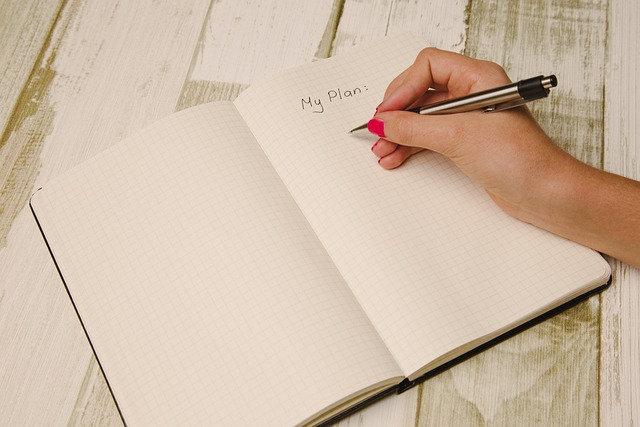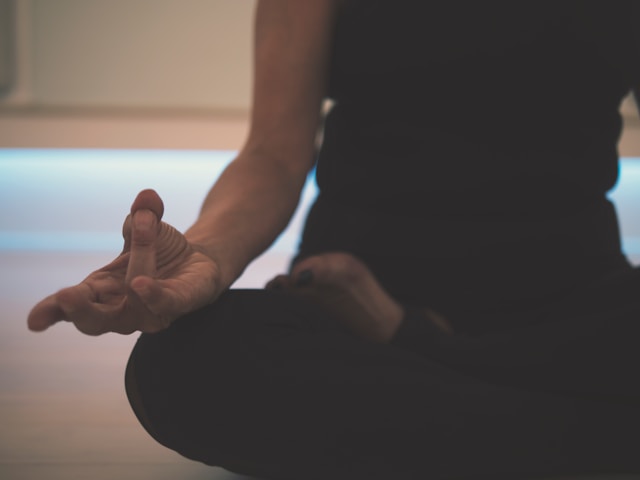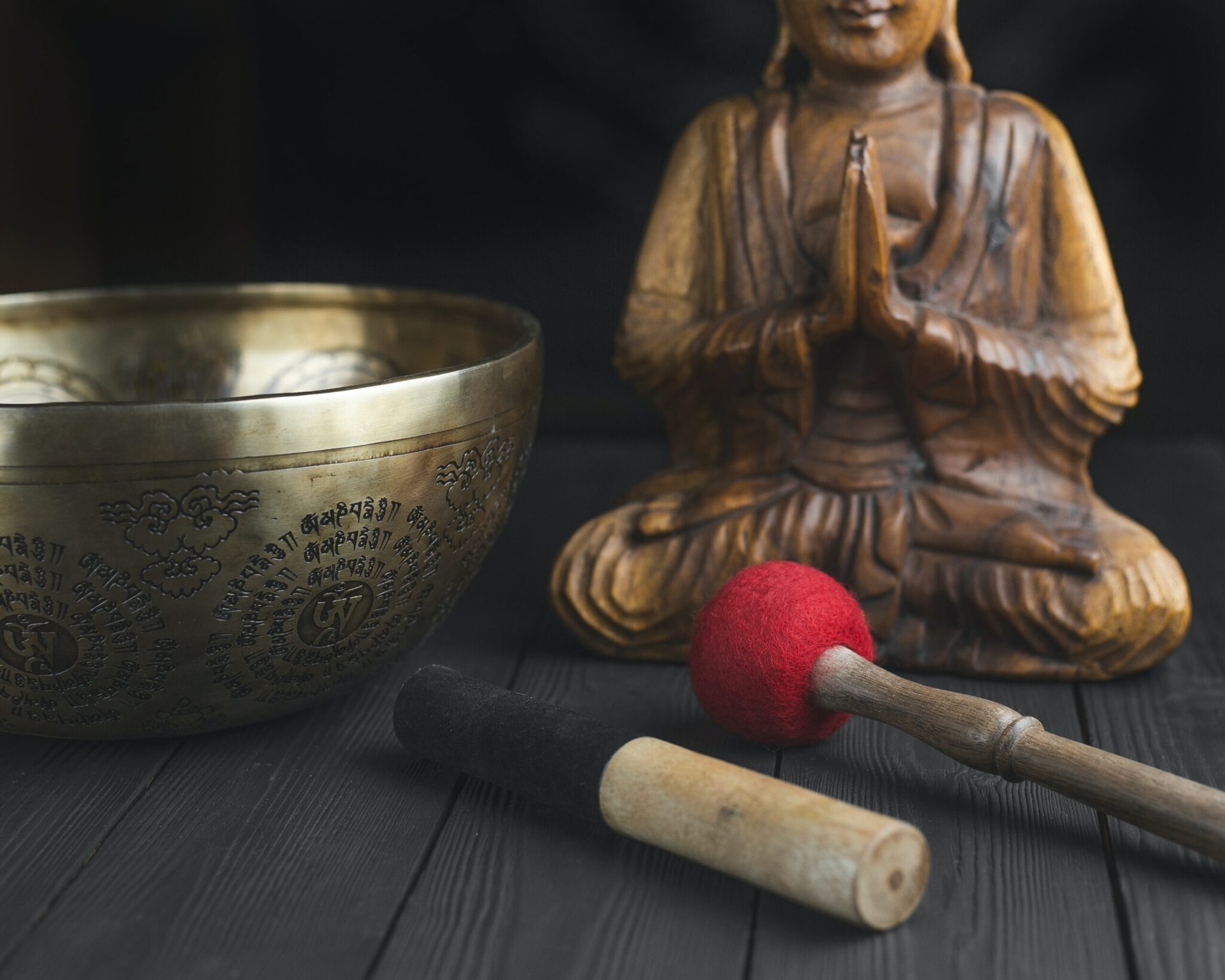I’m going to introduce you to the art of creating habits through meditation. But first, it’s important to grasp why building new habits is a game-changer for our lives. Meditation isn’t just about finding a moment of peace; it’s a gateway to forming enduring habits that can transform your everyday experience.
You’re going to find out about how meditation serves as an essential tool in habit formation. This is a process that’s deeply rooted in intention and awareness, elements that are at the core of meditation practices. By setting an intention to meditate, you’re also setting the foundation for a new habit that can bring about significant changes in your life.
This isn’t just about sitting in silence; it’s also about cultivating an enhanced sense of self-awareness and control over your routines. As you delve into meditation, you’ll be engaging directly with the mechanisms that govern habit creation, providing a fertile ground for personal growth and stability.
The Pillars of Habit Formation
Habit formation isn’t just about doing something repeatedly; it’s about building the foundational blocks that support long-term change. At its core, a habit is a behavior that’s become automatic through consistent repetition. It’s something you do without even thinking about it, like brushing your teeth in the morning.
Psychologists have done some incredible work unraveling the intricacies of how habits are created and maintained. When you dive into the psychological mechanics, you find there’s a simple, yet powerful, pattern: the habit loop. It consists of three main elements: cue, routine, and reward. The cue triggers the behavior, the routine is the behavior itself, and the reward is the benefit you receive from the behavior.
Let’s take meditation as an example. The cue could be the time of day, the routine is the act of meditating, and the reward is the feeling of calm and clarity afterward. Building a habit, especially one as nurturing as meditation, relies profoundly on consistency and repetition. It’s the daily repetition that etches these behaviors into our neural pathways.
I’m going to tell you about the practical steps you can take to make meditation a habit in the next section. Also, you’re going to find out how to leverage the positive effects of a consistent meditation practice to nourish your mind and ultimately, lead a more fulfilled life.
Harnessing Benefits: The Positive Impact of Habits
We often hear about the necessity of developing good habits, but what does that really mean for us on a practical level? You’re going to find out about the undeniable advantages that well-crafted habits have on our lives. It’s not just about improving productivity; it’s also about enhancing personal satisfaction and overall wellness.
Think about habits as the framework for our daily lives. When we cultivate productive habits, they serve as small, automated choices that reduce the decision-making load on our brains, freeing us up to focus on higher-priority tasks. These are the routines that, once established, help us operate more efficiently and achieve our long-term goals with less effort.
Good habits are akin to investments in our future selves. They often start small, but their compound effect over time can lead to significant personal growth and improvement. This includes becoming more skilled in a hobby, achieving better health, or even cultivating a more positive mindset.
But it’s not just about the tangible outcomes. Good habits also play a crucial role in enhancing our mental health and emotional well-being. By establishing routines such as regular exercise, healthy eating, or mindfulness practices like meditation, we can develop resilience against stress, foster a sense of accomplishment, and build a more stable and satisfying personal life.
Your first attempt doesn’t need to be your last when crafting these habits. Choose something that resonates with you, and allow yourself the grace to grow into your routines. Each habit you create is a milestone on the path to a more organized and purposeful life. You can always tweak your habits as your life and circumstances change, keeping the benefits fresh and relevant.
When Habits Take a Dark Turn

Recognizing the signs of harmful habits is crucial. This isn’t just about biting your nails or occasionally overindulging. It’s also about patterns that affect our mental and physical health on a deeper level. We’re looking at habits that might lead to stress, anxiety, or even physical ailments. These can range from consistently poor dietary choices to more serious issues like substance abuse. These habits often start as coping mechanisms or short-term solutions and quietly take root.
The impact of negative habits is profound. They can derail our goals, sap our energy, and contribute to a range of health problems. There’s the mental toll, too, where such habits can lead to a negative self-image and a feeling of being trapped in one’s own life. It’s a self-reinforcing cycle: bad habits can cause stress, and stress can lead to the formation of more bad habits.
You’re going to find out about strategies for breaking the cycle of detrimental habits later on, but for now, it’s important to understand that the road to changing these habits is paved with awareness and the willingness to act. Acknowledging the problem is the first major step towards a solution.
Meditation: A Keystone Habit for a Positive Lifestyle
In my opinion, meditation is akin to a master key when it comes to the realm of habit formation. You’re probably wondering, ‘Now what is a keystone habit?’ It’s a type of habit that creates a domino effect, positively impacting various aspects of your life. Here, meditation stands out as a tremendous keystone habit.
So why exactly is meditation so influential? When you integrate meditation into your daily routine, you’re setting the stage for improvements in many areas. Regular practice can increase self-awareness, reduce stress, and enhance overall emotional health. From better sleep to sharper focus, the benefits of this single habit can be extensive and deeply transformative.
But that’s not all. There are actual case studies illustrating the profound influence that adopting meditation can have. People from all walks of life have shared their experiences, detailing significant changes in their personal and professional spheres. A study from the Journal of Psychological Science even found that brief daily meditation sessions led to improved attention and cognitive flexibility.
This includes educational settings, where meditation programs for students have shown improved academic performance and decreased anxiety levels. Hence, establishing the habit of meditating can very well serve as a foundation upon which you can build a healthier, more balanced, and productive lifestyle.
This leads us to wonder how one can effectively weave meditation into their daily life. It’s crucial to craft a practice that’s not only beneficial but one that resonates with you. After all, a habit must align with your values and fit into your life seamlessly to stand the test of time.
Crafting Your Meditation Practice: A Habit-Builder’s Guide
Choose a meditation style that resonates with you. There are various forms like mindfulness, guided, transcendental, or movement-based meditations like yoga or walking. Experiment to see what suits you best.
You’re going to find out that environment matters. A dedicated, quiet space free from interruptions can significantly enhance your practice. Add elements that promote relaxation, such as cushions, soft lighting, or gentle background music.
In my opinion, consistency is key. Start with as little as five minutes a day and gradually increase the time. Pick a specific time for meditation, like after waking up or before bed, to anchor it in your routine.
Don’t worry too much about immediate perfection. It’s normal for your mind to wander, especially in the beginning. Acknowledge it and gently bring your focus back to your meditation without self-criticism.
Keep your motivation clear and revisit it often. Whether it’s stress reduction, enhanced clarity, or simply time for yourself, remembering why you’re meditating can keep you on track.
Use cues to form your new habit. Pair meditation with an existing habit, like after brushing your teeth or having a cup of tea. This technique, known as habit stacking, can make your new practice more automatic.
Encountering Challenges and Positively Persevering
I’m going to level with you: forming new habits, like meditation, isn’t always a walk in the park. You’re going to encounter some roadblocks, but that’s just part of the process. Meditation might seem simple, but the common challenges are often what make or break the habit formation journey.

Distractions, discouragement, and time constraints – you might have faced them all. But don’t worry too much about these stumbles; they’re not failures but learning opportunities. Think of each challenge as a teacher showing you how to adapt and strengthen your meditation practice.
I’ve seen the powerful effects of staying the course. Consistency is key; even when you miss a day, jump right back into practice without beating yourself up. You can always adjust your approach down the road. Remember, your first attempt doesn’t need to be your last.
In the next section, we’re going to look at how reflection and adaptability are crucial for maintaining your meditation habit. Just don’t focus too much on perfection. It’s the commitment to grow through meditation, day by day, that truly counts.
Reflecting and Refining: The Art of Mindful Habit Maintenance
I’m going to wrap up our exploration of meditation as a habit with some parting advice. You’ve learned how to start, and now it’s about keeping the momentum. Having a meditation habit isn’t just about daily repetition; it’s also about ongoing reflection and readiness to adapt. As your life changes, so too might your meditation needs and preferences.
Regular check-ins with yourself are key. This isn’t just about marking streaks on a calendar; it’s also about assessing how you feel and how your practice affects different aspects of your life. If the benefits are starting to fade, don’t worry too much about shaking things up. You can always adjust your approach down the road.
Remember, your first attempt doesn’t need to be your last. Meditation is a personal journey, and what works for you today might not work tomorrow. Choose something that resonates with you now and be open to change. Meditation apps, communities, and journals can be excellent resources to help keep your practice fresh and aligned with your goals.
In my opinion, the true beauty of meditation lies in its flexibility. There’s a lot of opportunity in this practice to discover what genuinely brings you peace, clarity, and happiness. That’s the strategy I like to leverage—continuous personalization for a lifetime habit that grows with me.
I really hope that you find serenity and strength in your meditation habit, and that it becomes a cornerstone of a happy, healthy life. I’d love to hear your feedback on your journey, so feel free to share your story. Thanks for guiding your mind towards a path of calmness and discover the difference a little quiet can make in your life.





